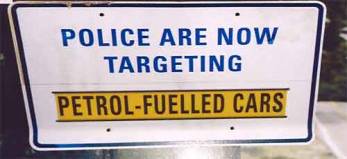
Automotive & transport
Transport trends
The UK Department of Transport recently published the 2005 edition of its Transport Trends report. Here are some of the key statistics. Over the period 1980-2004 people in all income groups have become much more mobile. Road traffic has increased by 81% over the period, rail trips have gone up 43% and air travel overseas has increased from 18 million trips to 64 million trips. The only forms of transport that have witnessed a decline are walking and cycling. Car access has increased across all groups, largely due to an increase in disposable incomes. 61% of women held a full driving license in 2004 versus 44% in 1989/91 and the same is true of seniors (people aged over 70) 47% of whom now hold a licence compared to 32% in 1989/91. Interesting though, the level of younger people (aged 17-20) holding a full licence has declined from 43% to 26% over the same period, presumably due to the higher cost of road tax, fuel and insurance.Fatality rates across all forms of transport have also declined substantially despite the increase in traffic levels.
Ref: Spiked Online (UK) 2 February 2006, ‘Transport Trends: The good news’, J. Bristow www.spiked-online.com
Search words: mobility, trends, transport, road use, statistics, safety
Intelligent Transport Systems
Intelligent Transport Systems (ITS) is a term given to all manner of silent technologies including in-car electronics, smart road systems, e-plates, satellite navigation, cashless road tolls and remote road monitoring. In theory, such technologies are simply used for planning and infringement purposes but such mass observation has more sinister uses too. Put simply, governments around the world are collecting vast amounts of digital data on their citizens, which technically isn’t owned by anyone since the laws of intellectual property do not apply to information about individuals. Moreover, if such data is held overseas, national laws about access or use may not apply. Data also gets lost or is sold (illegally) to people who have an interest in where you go and how you get there.However, the real danger from a privacy point of view is what happens when data from various databases is linked. On the other hand, what would the government – or any other organisation – do with such vast amounts of data? One answer is obviously linked to state security and terrorism, but the other answer is simply that electronic surveillance is cheaper than conventional policing. On a more positive note, such monitoring should seriously harm the stolen car and stolen goods trade and could lead to cheaper insurance premiums for certain types of drivers.
Ref: Sydney Morning Herald (Aus) 28 January 2006, ‘Eyes on the road’, N. Barrowclough www.smh.com.au
Search words: privacy, monitoring, roads, cars, ITS, data
How safe is your car?
On the one hand there seems to be a significant political will at the moment for capturing information about citizens and monitoring their every move. On the other hand the Internet is empowering ordinary individuals to turn the tables and find out who is watching them or collect previously hard to find information. Two examples of citizen power include a website in Australia called How Safe is Your Car that allows drivers to assess the crash worthiness of over 80% of vehicles made since 1990 that are on Australian roads. The other example is a site in the UK that (thanks to the Data Protection Act) allows drivers to access the last picture ever taken of their car by speed cameras – even when they were only speeding by 1mph – and look up even small infringements that did not lead to a fine.
Ref: Various. See www.howsafeisyourcar.com.au and www.e-database.co.uk
Search words: information, cars, safety, privacy
Slippery ships
In 2003, 90% of all goods transported around the world were transported by ship. Any innovation that could reduce drag – make ships more slippery – would be welcomed because it would allow ships to move faster and carry a greater payload using the same amount of fuel, or reduce pollution. A project being worked on at the Advanced Maritime Technology Department at the National Maritime Research Institute in Japan is seeking to create a ‘Super Eco’ ship. The aim is to design a ship that reduces greenhouse gas emissions by 25% while increasing payload by a fifth. One solution is to create a film of small bubbles under the ship, creating a magic bubble carpet. However, while this process has been proven to reduce drag by 3-10% it only works at slow speeds. Moreover, the energy required to generate the bubbles (from the bow of the ship) almost negates the energy saved by using them. Nevertheless, given concerns about the price of oil, ‘air lubrication’ could be a technology of the future.
Ref: New Scientist (UK) 18 February 2006, ‘Ocean Flyer’, T. Thwaites www.newscientist.com
Links: Use of sails on powered cargo ships
Search words: ships, energy, efficiency, drag
Pink cabs and driving schools
We’re previously reported on women-only buses in India so it’s perhaps no real surprise to read on Springwise.com that in London an entrepreneur has launched a women-only mini-cab franchise. Called Pink Ladies, the business operates on an account, credit card or pre-paid basis. Drivers (all of whom are women) are trained in self-defence and wait outside the final destination to ensure that female passengers arrive safely. Meanwhile, in India, a car manufacturer called Maruti Udyo has established a series of Maruti driving schools following the theory that if you want people to buy your product, it’s often a good idea to show people how to use it.
Ref: Springwise (Netherlands) 15 March 2006, ‘Cabs for and by women’, and 18 March 2006 ‘Driver’s ed for customers’ www.springwise.com
Search words: women, taxis, driving, schools, education, brand experience
